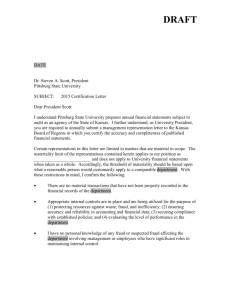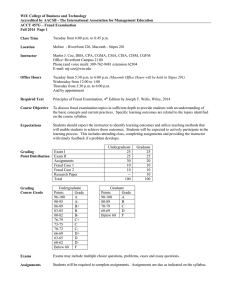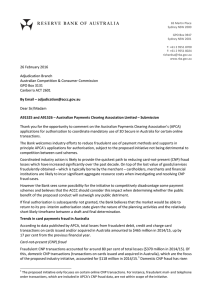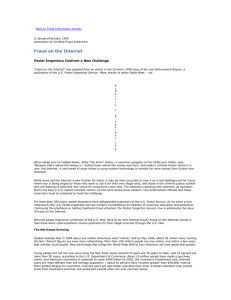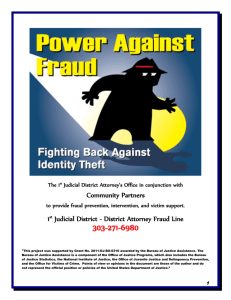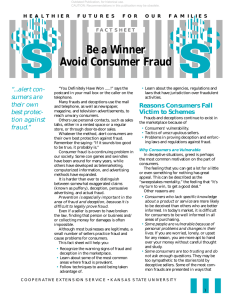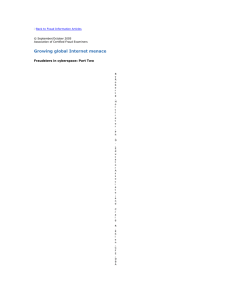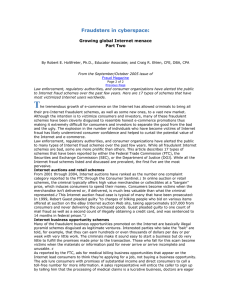Avoiding Fraud
advertisement
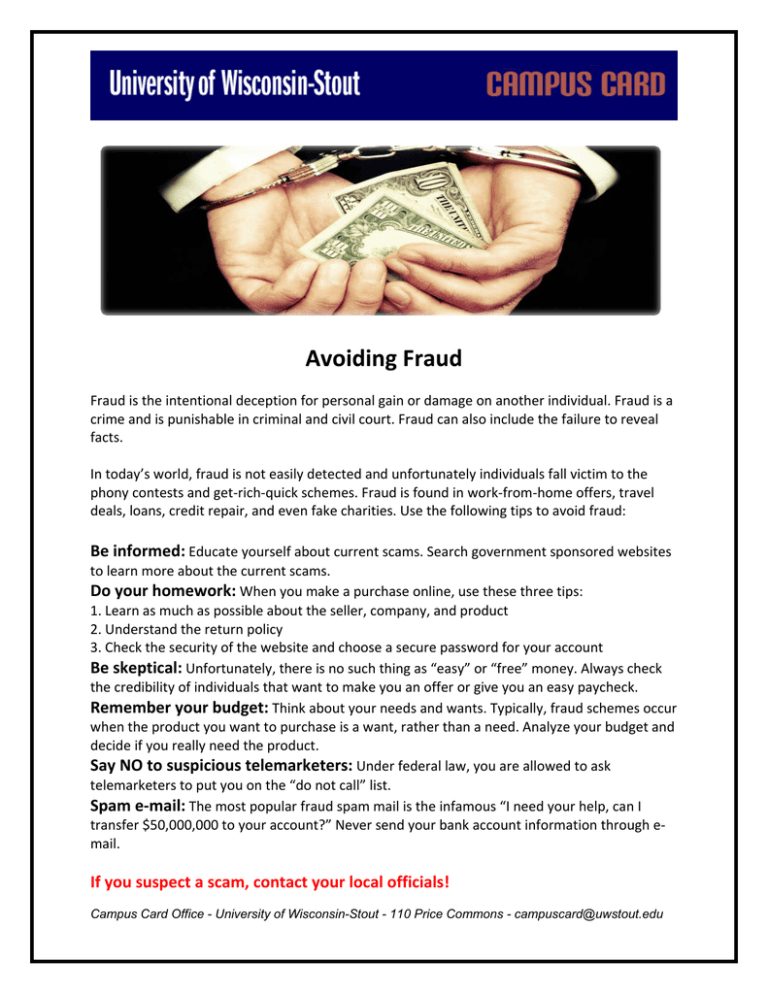
Avoiding Fraud Fraud is the intentional deception for personal gain or damage on another individual. Fraud is a crime and is punishable in criminal and civil court. Fraud can also include the failure to reveal facts. In today’s world, fraud is not easily detected and unfortunately individuals fall victim to the phony contests and get‐rich‐quick schemes. Fraud is found in work‐from‐home offers, travel deals, loans, credit repair, and even fake charities. Use the following tips to avoid fraud: Be informed: Educate yourself about current scams. Search government sponsored websites to learn more about the current scams. Do your homework: When you make a purchase online, use these three tips: 1. Learn as much as possible about the seller, company, and product 2. Understand the return policy 3. Check the security of the website and choose a secure password for your account Be skeptical: Unfortunately, there is no such thing as “easy” or “free” money. Always check the credibility of individuals that want to make you an offer or give you an easy paycheck. Remember your budget: Think about your needs and wants. Typically, fraud schemes occur when the product you want to purchase is a want, rather than a need. Analyze your budget and decide if you really need the product. Say NO to suspicious telemarketers: Under federal law, you are allowed to ask telemarketers to put you on the “do not call” list. Spam e‐mail: The most popular fraud spam mail is the infamous “I need your help, can I transfer $50,000,000 to your account?” Never send your bank account information through e‐ mail. If you suspect a scam, contact your local officials! Campus Card Office - University of Wisconsin-Stout - 110 Price Commons - campuscard@uwstout.edu




